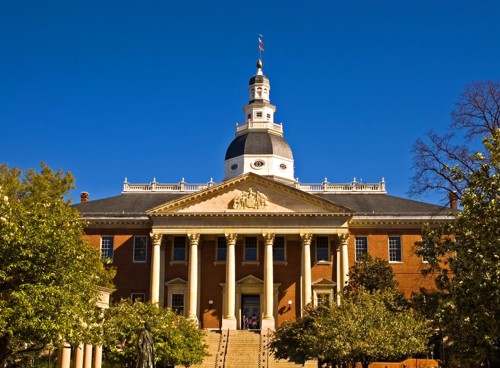Maryland is on track to establish a state-run marketplace allowing individuals and small businesses to compare rates and benefits for private health insurance plans by the 2014 deadline laid out by the federal Affordable Care Act, according to Joshua Sharfstein, secretary of the state Department of Health and Mental Hygiene. Positioning itself as a leader in health care reform, the state forecasts that such a marketplace will allow 145,000 people to gain health insurance coverage in its first year alone, putting Maryland well on the way to its stated goal of halving its 700,000-strong uninsured population by 2020.
 About 17 states, including Florida, Texas and Georgia, decided to wait for the U.S. Supreme Court’s decision on the constitutionality of federal health care reform before continuing plans to design such health insurance marketplaces, known as exchanges, according to the Kaiser Family Foundation.
About 17 states, including Florida, Texas and Georgia, decided to wait for the U.S. Supreme Court’s decision on the constitutionality of federal health care reform before continuing plans to design such health insurance marketplaces, known as exchanges, according to the Kaiser Family Foundation.
The purpose of an exchange is to allow consumers to more easily compare premiums and benefits across private plans, enable transparency and competition among insurance providers, and create access to affordable and portable health insurance coverage that is not necessarily linked to a person’s employment.
Under the ACA, states can create their own exchanges, run an exchange in partnership with the federal government, or have the federal government run the exchange. States must have their plans for exchanges approved by the U.S. Department of Health and Human Services by Jan. 1, 2013, and have the exchanges up and running by Jan. 1, 2014.
Ironically, now that the U.S. Supreme Court has upheld the constitutionality of the ACA, many of the states that challenged the federal health care reforms in court may find themselves running out of time to design and submit blueprints for home-grown exchanges, leaving them with little option than to default to a federally-run exchange if they want to have a functional marketplace by 2014, Sharfstein said in a public briefing on Capitol Hill yesterday.
Maryland’s Democratic governor, Martin O’Malley, started formal planning for his state’s implementation of the federal health care reform law a mere day after President Barack Obama signed the bill into law in March 2010, Sharfstein said.
O’Malley’s early adoption of federal reforms led to the passage of state legislation establishing the Maryland Health Benefit Exchange as a public corporation in April 2011. A year later, the Maryland Legislature had crafted and approved policies for the state’s exchange. Individuals and groups seeking health insurance will be able to enroll in the exchange by October 2013.
The state forecasts that by 2020, about 274,000 people will have gained health insurance coverage through the state health insurance exchange, and an additional 187,000 will have newly enrolled in its expanded Medicaid program.
Maryland was one of 13 states to have filed amicus, or “friend of the court,” briefs in the U.S. Supreme Court in support of the ACA.
Photo from Outdoor.com
























